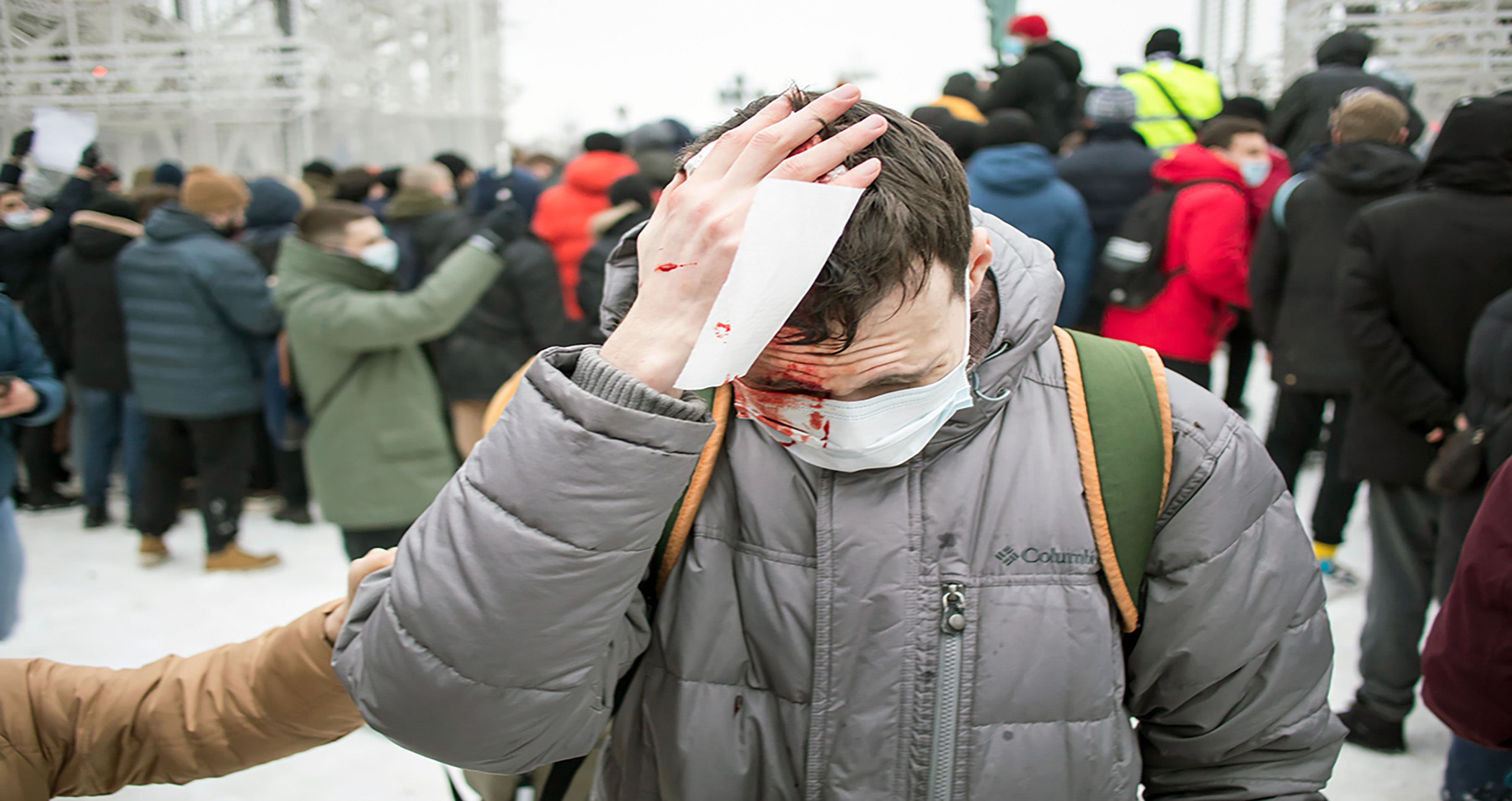Thousands protest in Russia following opposition leader’s arrest

Thousands protest in Russia following opposition leader's arrest
On Saturday, January 23, tens of thousands of people took to the streets across Russia to protest the arrest of Alexey Navalny, the political opposition leader (BBC News, 2021a). The country’s capital, Moscow, reportedly held the largest protest in seven years (Human Rights Watch, 2021).
The protests, which were also held to rally against state corruption, led to over 3,700 people being detained. Numerous reports and video footage have also been shared, which show police using what appears to be excessive force against protesters (Human Rights Watch, 2021).
Who is Alexei Navalny?
Alexei Navalny is considered Russian President Vladimir Putin’s biggest opposer and an outspoken critic of the reported corruption in Russia (BBC News, 2021b).
His public profile was established in 2008, where he began posting videos on his YouTube channel exposing corruption within Russia’s state-run corporations. He has since continued to post videos (which receive millions of views) and make appearances which criticize Russia’s political methods and condemning the Kremlin as a corrupt institution. He has used language such as “crooks and thieves” to describe United Russia, President Putin’s political party (BBC News, 2021b).
In August 2020, Navalny collapsed on a flight over Siberia, where an emergency landing saw him rushed to an Omsk hospital. He was later transferred to a medical facility in Berlin to receive treatment after going into a coma, thanks to a German charity persuading Russian authorities to allow this (BBC News, 2021b).
In early September 2020, it was announced by the German government that Navalny had been found to have Novichok poison in his system, a chemical nerve warfare agent known to be used by Russia (BBC News, 2021b).
Despite the tests on Navalny by the German military, who confirmed that the proof of poisoning was ‘unequivocal,’ the Kremlin deny any role in the poisoning. However, following a sting operation that led to confessions by a Russian agent revealing that the state was in fact responsible for Navalny’s poisoning, the EU imposed state sanctions on Russian agents as well as on a Russian chemical weapons center (BBC News, 2021b).
Arrest and public reaction
Upon his return from Berlin, where he had been recovering since the Novichok poisoning, Navalny was arrested at a Moscow airport on January 17. Subsequently, he has been sentenced to 30 days in prison, leading to international condemnation.
The following day, a video was posted of Navalny urging his supporters to go out into the streets of Russia and protest the corruption in their country (Foy & Peel, 2021).
Further outrage ensued on January 19, two days after Navalny’s arrest, when his team released an almost two-hour long video on Navalny’s YouTube channel exposing what he claims to be a palace built for President Putin using tax-payer money. The video has now been viewed over 95 million times (Alexei Navalny, 2021).
‘Putin’s Palace,’ as it is being called, features an extensive compound over three times the size of the nearest city. The compound includes its own harbor, impenetrable fences, a church, a checkpoint, an ice-hockey rink, an amphitheater and more. The Kremlin rejects any truth in the allegations made in the video (DW News, 2021).
Since Navalny’s arrest and subsequent ‘Putin’s Palace’ investigation video, tensions have been heightening between the public and the Russian authorities. These tensions culminated in the protests which took place on Saturday, January 23, which alongside the large number of attendees, were significant in the youth population turnout (BBC News, 2021a).
The protesters held up signs and called out “Freedom,” “Putin’s a thief,” and “Freedom to Political Prisoners,” whilst rallying in freezing temperatures of up to -50C. The majority of the protesters acted peacefully, but that didn’t deter the police from reacting with force and detaining thousands, of which Yuliya Navalnaya – Navalny’s wife – was one of (Human Rights Watch, 2021).
Just the beginning?
The arrest of Navalny alongside the police’s display of brutality against protesters appears to be acting adversely for the Russian authorities. Not only has the European Union spoken out against the state’s actions, but representatives from the United States, United Kingdom, Canada, France, Germany, Italy, and Japan have also voiced their disapproval (The Guardian, 2021).
The Navalny protesters plan to stage further demonstrations against the political corruption on January 31 and February 2, with the intent to stop the United Russia party from taking control of the September 2021 election (The Guardian, 2021).
It remains to be seen what the outcome will be for Russia and for the future of the Kremlin. However, the increasing hostility towards Putin’s government is likely to shake up Russia’s social and political systems in the coming future.

Article by
Costadina Tsoukala-Steggell

Categories
Anti-corruption, Asia, Categories, Countries, Europe, Human rights, Russia


